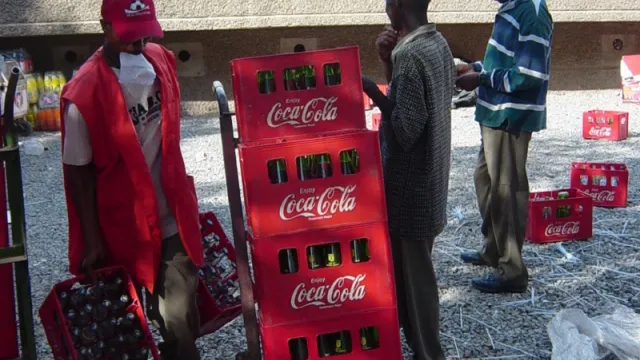Turning on credit taps for small businesses after COVID-19

Turning on credit taps for small businesses after COVID-19
Banks are having a difficult time making lending decisions after COVID-19 increased loan defaults and well-intentioned suspension of credit information created opacity.
Loan growth among tier-one banks rose by 17.2 per cent from Sh1.9 trillion to Sh2.3 trillion over the first six months of the year as banks took a defensive pose while restructuring billions of already existing facilities.
Read also
- Are banks using the pandemic to clean their bad books?
- Beyond profits, how two banks saved Kenya’s financial system
Defaulted loans stand at Sh394.4 billion as at August this year or 13.6 per cent of all loans issued, making it very risky to roll out facilities with current uncertainties over the speed of economic recovery post COVID-19.
While Kenyans await for the government’s SME guarantee scheme, banks have been forced to become more innovative by finding solutions that minimize risk while providing new opportunities to lend.
Banks have to be more involved in understanding a business, for instance in supplying only one area of a supply chain, a business may still find trouble with off-take of its product if other businesses in the value chain are struggling.
Absa Bank’s partnership with Coca-Cola and Amref is a good example of how to provide solutions for clients across the value chain including individuals, small and medium enterprises (SMEs) and both small and big corporate organizations since none of them operate in isolation.
The partnership shall support businesses affected by COVID-19 across the entire Coca-Cola value chain with revolving short-term working capital financing to bridge any cash flow challenges between stock purchase and receipt of payment from their customers.
Absa Regional Corporate Director for East Africa, Mr James Agin said the solution offering unsecured loans of up to 10 million shillings which is the highest in the market, as well as LPO financing and invoice discounting of up to 50 million shilling amongst other benefits will go a step further to provide financial support to their employees as well as their suppliers.
The lender will also offer insurance and asset-based financing allowing the distributors and retailers the flexibility to accept extended payment terms from manufacturers as well as increase their credit should they require it.
Such an initiative requires strong partnerships. On its part, Coca Cola has committed Sh125 million towards supporting their trade partners and waste collectors, eateries, restaurants, bars and kiosks.

These initiative is targeting 18,000 trade outlets across the country who will receive personal protective equipment including masks and face shields, handwashing jerry cans, sanitizers, and garden furniture to enable them to enforce the required social distancing.
Absa bank is also retooling its breakthrough SME Wezesha Biashara that offers small and medium businesses unsecured loans to make the product both prudent and hit high potential areas for post COVID-19 recovery.



